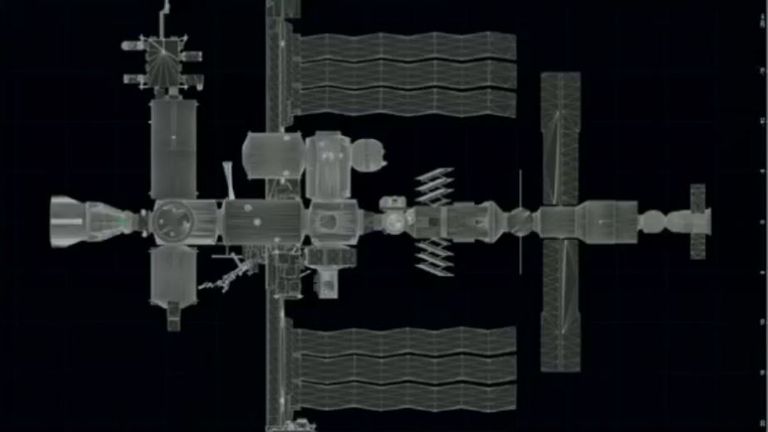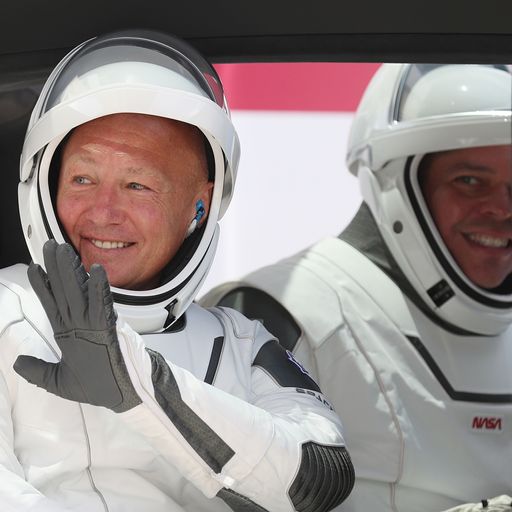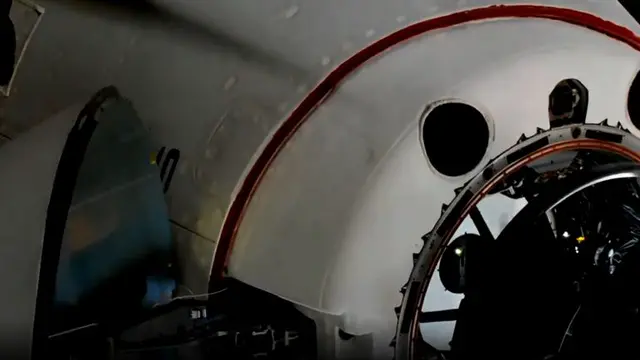The rocket launched into space by NASA and SpaceX on Saturday afternoon has docked with the International Space Station.
The historic mission saw the astronauts
launched from US soil for the first time in almost a decade.
US astronauts Douglas Hurley and Robert Behken blasted off from the Kennedy Space Center, in Florida, and were accelerated to approximately 17,000mph (27,000kmph) - 22 times the speed of sound - on an intercept course with the ISS.
They orbited the Earth for roughly 19 hours before docking on Sunday.
A few hours before docking, the Crew Dragon riders reported the capsule was performing well.

Image:An image shows the ISS and the Crew Dragon locking together after the soft docking. Pic: SpaceX
Hurley and Behken took over the controls and did some piloting less than a couple hundred yards out as part of the test flight.
They then put it back into automatic controlling for the final approach.
Hurley said the capsule handled "really well, very crisp."
It successfully soft docked at 3.17pm - where the rocket and the ISS first locked together - before docking completely at 3.30pm.
Once they landed, the duo thanked the SpaceX team for their hard work and praised NASA.
"This is an incredible time to be at NASA. We thank you again and congratulate you," the astronauts added. "Happy to be aboard."
NASA has yet to decide how long Hurley and Behnken will spend at the space station, however it will be somewhere between one and four months.
While they're there, the Dragon test pilots will join the one U.S. and two Russian station residents in performing experiments and possibly spacewalks to install fresh station batteries.
The launch, named Demo-2, was the first manned mission for
Elon Musk
's spaceflight company **SpaceX
** - and the first private involvement in taking astronauts to the ISS.

Who are Douglas Hurley and Robert Behken?
It had initially been scheduled for Wednesday but that launch was postponed just minutes before lift-off due to lightning risks.
On Saturday, the launch went off without a hitch and crowds could be heard cheering in jubilation after the rocket took to the skies.
The capsule could lead NASA to fully certify the company for manned launches, should its return to Earth be completed without any issues.
 简体中文
简体中文

